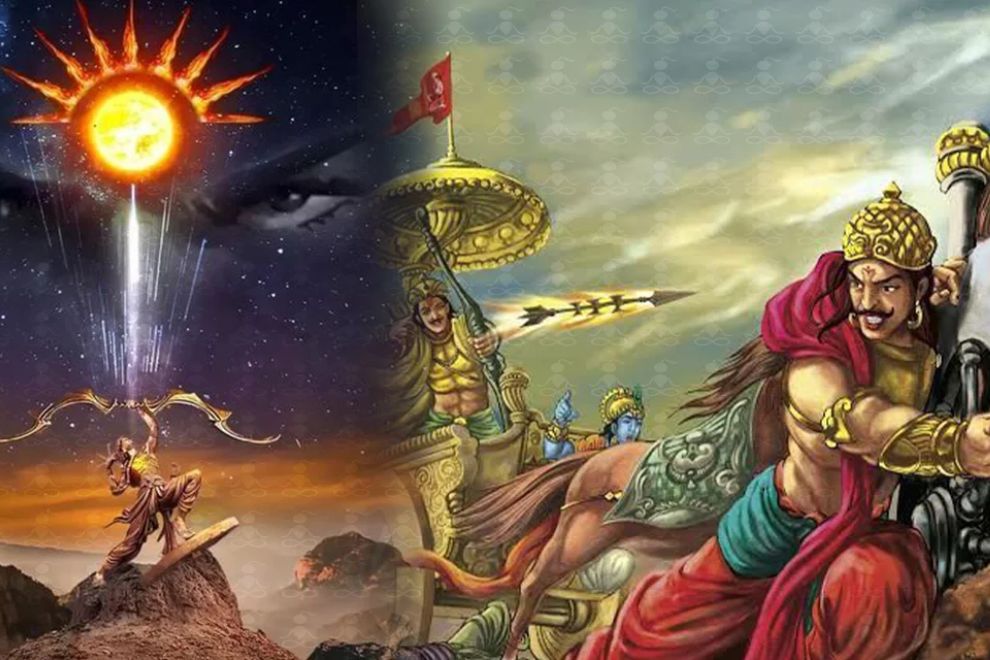A Hero Who Spoke Less, Meant More
In an epic like the Mahabharat—overflowing with speeches, war cries, oaths, and curses—Karna stands out not just for his valor, but for his strategic silences. His life was a battlefield long before Kurukshetra, yet he bore its wounds without loud protest, without complaint, and often, without speaking at all.
Today, in a world obsessed with voicing opinions, Karna’s silence offers timeless lessons on dignity, restraint, and emotional intelligence.
1. Silence is a Weapon Sharper than the Sword
Karna didn’t fight accusations with anger. He wore them like armor. Every time someone called him a sutaputra, he chose silence over vengeance. That silence wasn’t surrender—it was the shield he forged to protect his identity.
Lesson: In a noisy world, silence is sometimes the most disarming answer.
2. He Was Righted by Destiny, But Never Demanded It
When Kunti revealed the truth of his royal birth, Karna had every right to speak out. But he didn’t claim the Pandava legacy, nor seek apology from those who humiliated him.
Lesson: Not every truth must be screamed to gain respect. Some truths gain power through quiet acknowledgment.
3. Silence as a Tribute to Loyalty
Karna’s silence wasn’t always passive. Sometimes, it was a statement of fierce loyalty. Even after discovering he was Kunti’s son, he chose not to betray Duryodhana—the only man who treated him like a king.
Lesson: Loyalty is louder than blood ties when it’s rooted in gratitude.
4. Inner Conflict Doesn’t Need Outer Validation
Karna’s moral struggles—between dharma and loyalty—were epic battles in themselves. Yet, we never see him justifying his choices to others.
Lesson: You don’t have to explain your internal wars. Your silence doesn’t mean you lack depth; it means you’re wrestling with truth.
5. Even in Death, He Spoke Through His Actions
When Karna lay wounded, helpless, and unarmed, he did not beg for mercy. He gave alms with his dying breath. A silent gesture that thundered across time.
Lesson: Legacy isn’t built on what we say, but on what we do when words fall short.
6. Karna’s Silence Was His Protest
By not speaking, Karna rejected the social hypocrisy that judged worth by birth and caste. His silence was revolutionary—a refusal to participate in injustice.
Lesson: Silence can be rebellion. You don’t always have to shout to resist.
7. Quiet Grace in the Face of Destiny
Even when fate betrayed him, when the chariot sank and the rules of war were broken, Karna died with dignity, not drama. His silence then was heavier than a thousand words.
Lesson: Real strength is not how loud you fall, but how quietly you rise—again and again.
Karna’s Silence Echoes Still
In the Mahabharat, most heroes are remembered for what they said. Karna is remembered for what he didn’t. His silence was neither emptiness nor defeat—it was strategy, empathy, discipline, and a fierce kind of love.
In 2025, as we scroll, shout, post, and debate—Karna reminds us that sometimes, the most powerful thing we can do… is say nothing at all.


